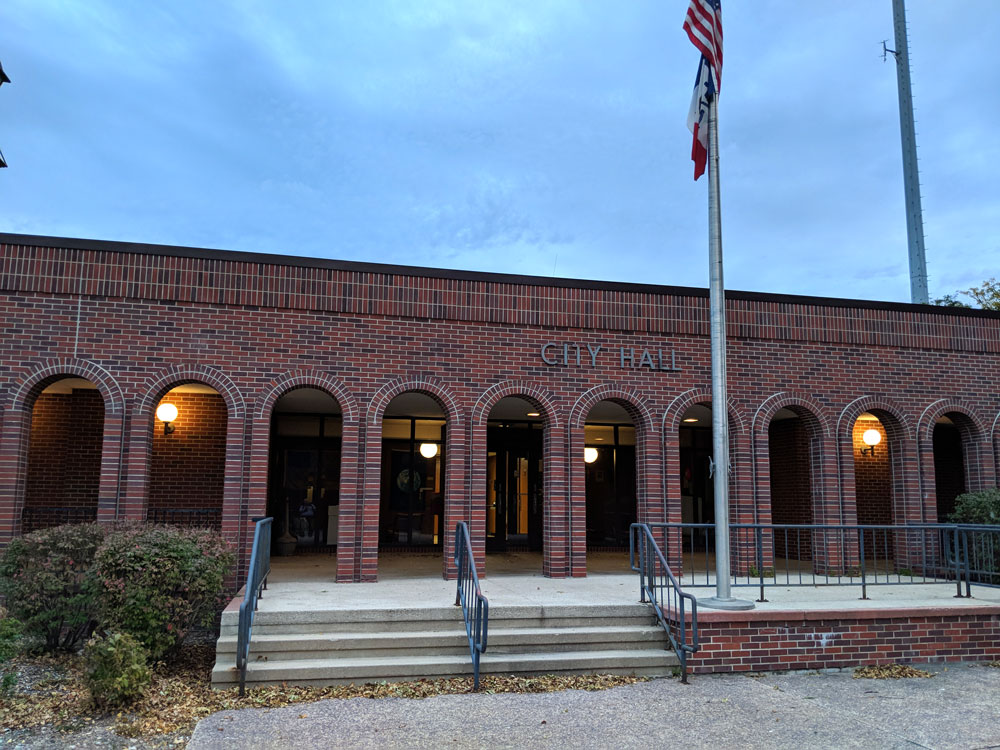State attorney general says Lindaman should get new trial

By Bob Steenson, bsteenson@charlescitypress.com
The Iowa Attorney General’s Office is asking the state Supreme Court to reverse the sexual abuse conviction of Douglas Lindaman and send it back to Floyd County district court for retrial.
The state agrees with an appeal by Lindaman that the district court did not properly assure his constitutional right to be represented by counsel was satisfied when Lindaman, a former attorney, decided to represent himself.
Lindaman was convicted at a jury trial April 12, 2016, in Charles City, on one count of sexual abuse in the third degree, a Class C felony. He was sentenced to serve up to 10 years in prison, and is currently incarcerated at the Newton Correctional Facility.
Lindaman filed an appeal in December 2016, arguing that the district court failed to adequately warn him about the risks of representing himself at trial.
He was represented in the appeal by Mark C. Smith, the state appellate defender, who filed the formal motion to the Supreme Court.
Although Lindaman has a law degree and formerly had a law license, his attorney argued in the appeal that the court did not meet the legal burden allowing him to waive his constitutional right to be represented by an attorney.
THREE OTHER ISSUES
Lindaman’s appeal raised three other issues, but the Attorney General’s Office focused on his right to an attorney, and argued since that issue was enough to cause the verdict to be reversed, the other three issues were moot and could be addressed in a new trial.
The motion to reverse was filed by Assistant Attorney General Genevieve Reinkoester.
Reinkoester was not available for comment Thursday and a district supervisor from the Attorney General’s Office did not return a call for comment made by the Press. Lindaman’s attorney, Smith, also did not return a call for comment Thursday.
The Floyd County Attorney’s Office declined to comment.
A representative of the state Supreme Court said he couldn’t comment on how likely it was that the court would agree with the state’s motion.
Lindaman was charged in 2015 with having sexually touched a 17-year-old boy in 2011. Lindaman had hired the boy as a farmhand.
Lindaman is a former attorney and Floyd County magistrate who lost his law license and served two years in prison after convictions in 1988 on two counts of lascivious acts with a child.
After having his rights restored as part of a blanket policy by Gov. Tom Vilsack, Lindaman unsuccessfully ran for the Floyd County Board of Supervisors and later the Charles City Board of Education.
In his appeal, Lindaman argued that even though he has a law degree, he did not have criminal trial experience and that it had been 28 years since he had practiced law.
He said that although a person has a constitutional right to defend himself, “the defendant must be made aware of the dangers and disadvantages of self-representation, so that the record will establish that ‘he knows what he is doing and his choice is made with eyes open.’
STATE MUST PROVE
“The state has the burden of proving the waiver was valid,” Lindaman’s appeal argued.
Quoting from case law, particularly a case known as Faretta v. California, Assistant Attorney General Reinkoester wrote, “‘Since it is more likely than not that a defendant would fare better with the assistance of counsel,’ before a defendant can proceed pro se (representing himself), he must ‘knowingly and intelligently waive his Sixth Amendment right to counsel.’
“The defendant’s request to proceed without counsel must be ‘clear and unequivocal’ and courts must ‘indulge every reasonable presumption against waiver’ of the defendant’s right to counsel,” Reinkoester wrote.
“‘Before a trial court honors an accused’s request to waive the right to counsel, it must satisfy itself that the defendant’s election is voluntary, knowing and intelligent.’ ‘In making this determination courts are required to engage the accused in a colloquy (discussion) sufficient to apprise a defendant of the dangers and disadvantages inherent in self-representation,’” the assistant attorney general’s motion said.
“After a thorough review of the record, the state agrees with defendant that the district court failed to engage him in a timely Faretta colloquy.
“While the district court conducted a Faretta colloquy with defendant during trial, it was not done until midway through trial, after the state had presented the great majority of its evidence, and after defendant had represented himself for the entirety of the criminal proceedings.”
Reinkoester concluded, “Because defendant’s Sixth Amendment right to counsel was violated, he is entitled to a new trial.”
APRIL 2016 TRIAL
Lindaman’s trial last April was extensively covered by the Press and widely followed.
Lindaman said in court filings and in his opening statement at trial that he touched the alleged victim “therapeutically” because he was trying to help the boy deal with a previous sexual injury, possibly caused by one of the boy’s family members, although he said under questioning by the prosecution that he did not have training as a therapist.
He said the touching was not sexual in nature and described it as innocent as touching the genitals of a baby during diapering.
The case was prosecuted by Floyd County Attorney Rachel Ginbey, who argued that it was “undisputed” that Lindaman touched the boy’s genitals and that the action occurred against the boy’s wishes.
“There’s no therapist out there that would ever try to recreate sexual abuse as part of treatment,” Ginbey said in her closing arguments.
The jury deliberated for about 3½ hours before finding Lindaman guilty of third-degree sexual assault.









Social Share